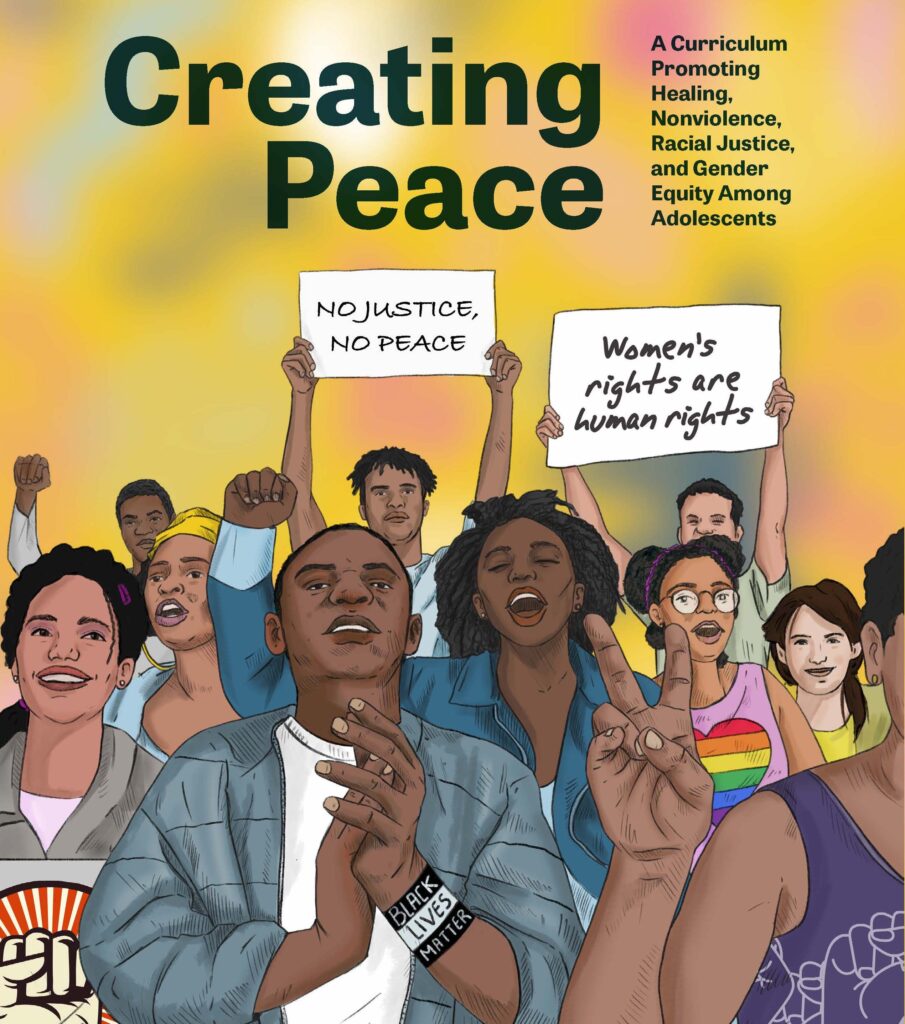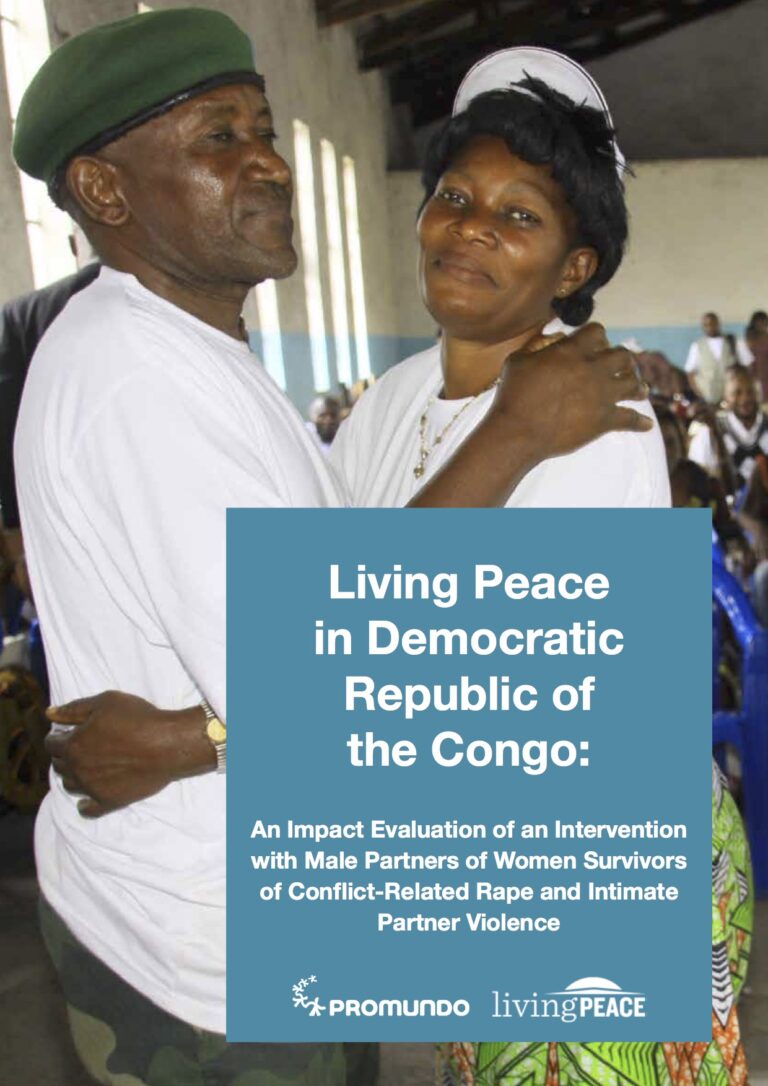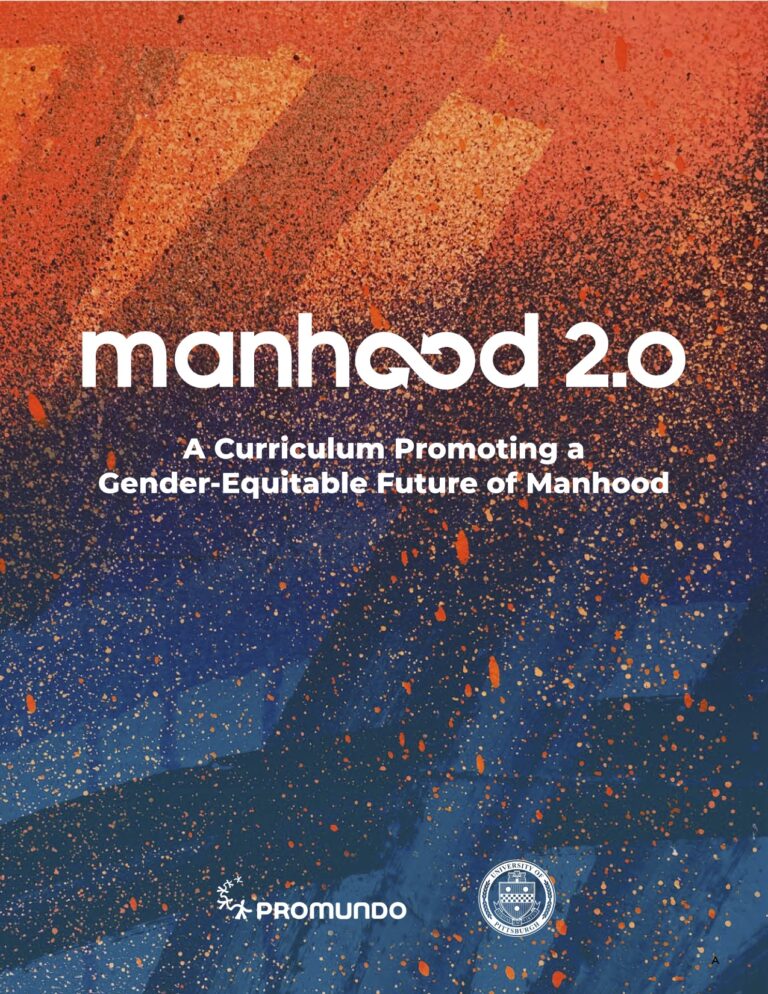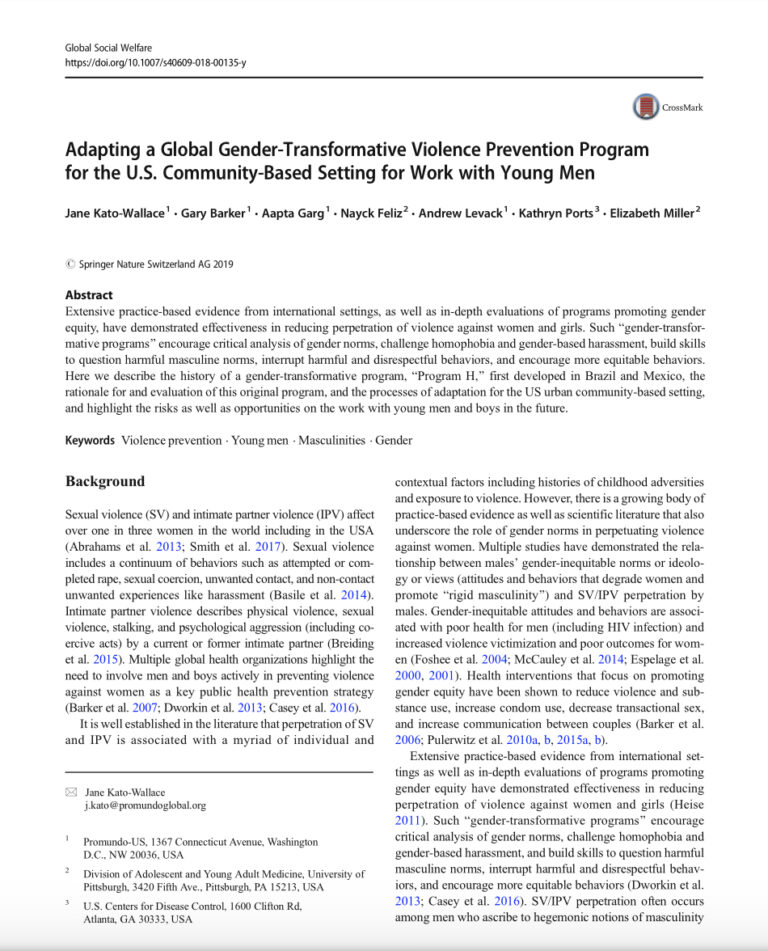Creating Peace is a 12 session curriculum for high school-age adolescents living in urban neighborhoods with high levels of community violence. By engaging young people in peer dialogue, critical thinking, and activism, this program aims to address inequitable gender norms, promote racial justice, and ultimately reduce violence and discrimination in communities in Pittsburgh, PA. The program is rooted in previous collaborations under this partnership, including Manhood 2.0 and Sisterhood 2.0, as well as trauma-focused work led by Equimundo and partners in Burundi and the Democratic Republic of Congo (DRC) called Living Peace.
Equimundo and University of Pittsburgh began developing and implementing the Creating Peace curriculum in 2019 in Pittsburgh, Pennsylvania, US. For this intervention, Equimundo led the curriculum adaptation process, and supported the University of Pittsburgh throughout the program with technical support. As the prime recipient of the award, and local community partner, University of Pittsburgh prevention oversaw the implementation, monitoring, and evaluation of the program. This intervention design and roll out was made possible with funding from the National Institutes of Health from 2019 to 2025.
Grounded in an intersectional feminist approach, Creating Peace recognizes that systems of power impact those most marginalized in society. This curriculum focuses on the relationships among gender inequity (attitudes and behaviors that degrade women and promote ‘traditional masculinity’), racial injustice, and violence perpetration. Social categories of class, race, sexual orientation, ability, and gender are complexly interwoven. Creating Peace is one of the few community-driven approaches to violence to also integrate how gender socialization (what it means to be a man, woman, or non-binary person) and unequal power dynamics contribute to violence.
Additionally, this curriculum utilizes trauma-informed approaches that recognize the impact of violence exposure on youth violence perpetration. This community-based model of programming, involving diverse community collaborators including leaders, educators, and community health professionals, is a rare but powerful methodology for sustainable holistic change towards non-violence. Because violence perpetration often emerges in multiple aspects of young people’s lives, violence prevention requires addressing those inequitable attitudes and behaviors, as well as acknowledging the environment in which young people live, learn, and play.



